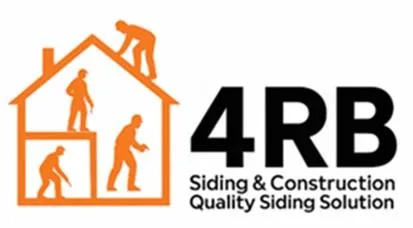Contact Us
Frequently Asked Questions
Answers To Your Common Questions
How do I know it’s time to replace my siding?
Signs your siding needs replacement include visible cracks, warping, fading, mold growth, or rising energy bills. If paint peels quickly or if there’s moisture damage inside your walls, your siding may no longer be providing adequate protection. A professional inspection can help determine whether a repair or full replacement is more cost-effective in the long run.
What areas do you serve outside of Renton?
In addition to Renton, we proudly serve nearby communities throughout the Greater Seattle Area. This includes Tukwila, Kent, Newcastle, Bellevue, Burien, and SeaTac. We also take on projects in surrounding King County neighborhoods. If you're unsure whether we cover your area, just give us a call — we're happy to confirm and provide a free consultation if you’re within range.
Will replacing my siding improve energy efficiency?
Yes, new siding can significantly improve your home’s energy efficiency. Many modern siding systems include insulation or better sealing techniques that reduce drafts and help maintain indoor temperatures. Especially in older homes, upgrading siding can cut heating and cooling costs and reduce the strain on your HVAC system by improving the home's thermal envelope.
What maintenance is required after new siding is installed?
Maintenance varies by material. Vinyl and metal siding require only occasional cleaning with mild soap and water. Wood siding needs periodic sealing or painting to prevent moisture damage. Fiber cement and stucco may need repainting over time. Routine inspections for damage, pests, or warping can help prolong the lifespan of any siding material.
How much does new siding typically cost?
Costs vary based on material, home size, labor, and location. In Renton, average siding installations range from \$8,000 to \$20,000, with vinyl on the lower end and fiber cement or wood on the higher. Requesting multiple quotes and understanding what’s included (like removal of old siding, insulation, or permits) will help you budget more accurately.
Do I need a permit to replace my siding in Renton?
Yes, in most cases, a building permit is required for full siding replacement in Renton. Your contractor usually handles the permitting process, including inspections. Minor repairs often don’t require a permit, but it’s always best to check with the city’s permitting office or your siding professional before starting work.
What types of siding materials are best for Renton’s climate?
Renton’s wet, temperate climate benefits from siding materials that resist moisture, mold, and rot. Fiber cement (like Hardie board), vinyl, and metal siding are all popular because they perform well in rainy environments. Wood siding is beautiful but requires more maintenance in humid conditions. EIFS and stucco can work too, if installed with proper drainage systems.
How long does a siding replacement project take?
Most siding replacements take between one to two weeks, depending on the size of your home, weather conditions, and material availability. Simple vinyl installations may go faster, while more complex materials or necessary structural repairs can extend the timeline. Your contractor should provide a schedule during planning and keep you informed of any delays or changes.
Can I replace siding myself, or should I hire a siding contractor?
While some experienced homeowners may attempt small repairs, full siding replacement is best left to licensed professionals. It involves structural assessments, moisture barriers, precision cuts, and safety practices. Improper installation can lead to leaks, rot, and voided warranties. Hiring a contractor ensures the job is done correctly and up to local building codes.
Is siding installation noisy or disruptive?
Some noise and disruption are unavoidable, especially during demolition of old siding. Expect hammering, sawing, and the movement of workers and materials. Most reputable contractors aim to minimize inconvenience, keep the jobsite clean, and work during standard hours. Communicating with your installer about schedules can help you plan around the most intensive parts of the job.
What’s the lifespan of different siding materials?
Vinyl siding can last 20–30 years, while fiber cement and metal can exceed 40 years with proper care. Wood siding typically lasts 15–30 years depending on maintenance. EIFS and stucco also have long lifespans but require specific installation practices to avoid moisture issues. Regular upkeep extends any siding material’s longevity and performance.
Can new siding increase my home’s resale value?
Absolutely. Siding replacement is one of the top home improvements for return on investment. Fresh siding enhances curb appeal, improves insulation, and reduces the likelihood of hidden damage — all factors that appeal to buyers. It shows your home is well-maintained, which can lead to faster offers and a better sale price.
© Copyright 2026 Renton Sidings. All Rights Reserved.
Zip Code We Cover:
98055, 98056, 98057, 98058, 98059, 98178, 98168, 98188, 98148, 98198, 98030, 98031, 98032, 98042, 98064, 98092, 98047, 98002, 98003, 98166, 98146, 98070, 98106, 98126, 98136, 98118, 98108, 98144, 98122, 98112, 98119, 98109, 98103, 98107, 98115, 98125, 98027, 98028, 98029, 98033, 98034, 98040, 98052, 98053, 98072, 98074, 98075, 98155, 98177, 98133, 98117, 98116, 98110, 98019, 98014, 98024, 98038, 98010, 98051, 98022, 98023

